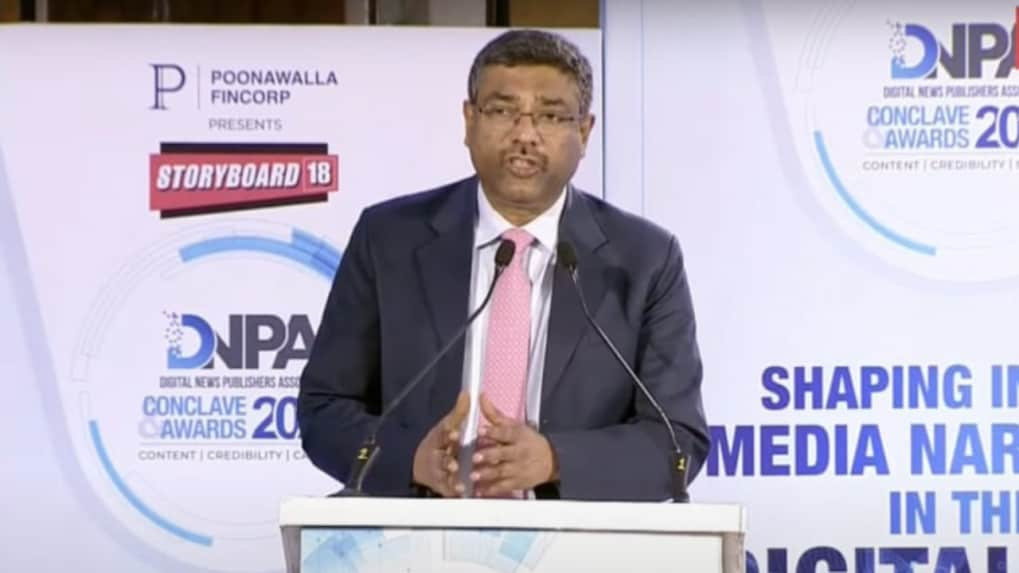Advertising
From Pink Slips to Silent Sidelining: Inside adland’s layoff and anxiety crisis

One the Indian government's top technology officials has offered a staunch defense of the government’s proposed legislation to ban online real-money gaming, framing it as a “balanced” effort to regulate a booming, but increasingly contentious, industry. “This is a balanced bill,” S. Krishnan, Secretary at the Ministry of Electronics and Information Technology, told Moneycontrol. “We have protected the creative aspects and the element of gaming — be it social games or esports.”
The measure, formally titled the Promotion and Regulation of Online Gaming Bill 2025, is expected to be tabled in the Lok Sabha on August 20, after securing approval from the Union Cabinet a day earlier.
The legislation seeks to prohibit companies from offering or facilitating online money games - defined as games played for a fee or monetary stake, regardless of whether they are skill-based or chance-based, with the expectation of winning money or other stakes. The bill underscores concerns that have shadowed India’s online gaming market, which has attracted billions in investment and hundreds of millions of users, but also generated alarm over gambling addiction, financial ruin and growing debt traps among lower-income groups.
Krishnan said the government’s intention was to bring long-awaited clarity to a fragmented sector. “The industry itself sought clarity — and we have provided it,” he said. “Gaming is not a monolithic industry. This bill puts all other AVGC (Animation, Visual Effects, Gaming, and Comics) games in clear light.”
Importantly, he added that the bill does not criminalize individual users. “There is no criminalisation of players. We have only set rules for the platforms providing these money games,” Krishnan said.
Still, questions remain over how effectively the ban could be enforced, given the prevalence of offshore operators and widespread access through virtual private networks (VPNs). Krishnan acknowledged those risks, but insisted the government was ready. “We fully understand that there will be technical and implementation challenges with respect to offshore gaming platforms, VPNs,” he said. “We are fully prepared to fight it.”
Industry leaders, however, warn that a ban could severely damage one of the fastest-growing segments of India’s digital economy. According to a joint appeal filed with Home Minister Amit Shah, three industry bodies — the All India Gaming Federation, the E-Gaming Federation, and the Federation of Indian Fantasy Sports — said the proposed legislation could destroy more than 200,000 jobs and drive users to unregulated offshore platforms.
The letter dated August 19 warned that the proposed bill would “strike a death knell” for the legitimate, regulated online gaming industry in India, and undermine Prime Minister Narendra Modi’s goal of a $1 trillion digital economy.
The organizations represent companies including Mobile Premier League (MPL), Nazara Technologies, Gameskraft, Zupee, Head Digital Works, Games24x7, Junglee Games and Dream11.
According to the industry groups, online skill gaming has generated more than ₹31,000 crore in revenue and contributed over ₹20,000 crore in annual direct and indirect taxes. The industry is projected to grow 20 percent annually and double in size by 2028. Real-money gaming apps account for the lion’s share of revenue in India’s gaming market, which is expected to surpass $9.2 billion by FY29, growing at 20 percent annually over the next five years.
From purpose-driven work and narrative-rich brand films to AI-enabled ideas and creator-led collaborations, the awards reflect the full spectrum of modern creativity.
Read MoreLooking ahead to the close of 2025 and into 2026, Sorrell sees technology platforms as the clear winners. He described them as “nation states in their own right”, with market capitalisations that exceed the GDPs of many countries.